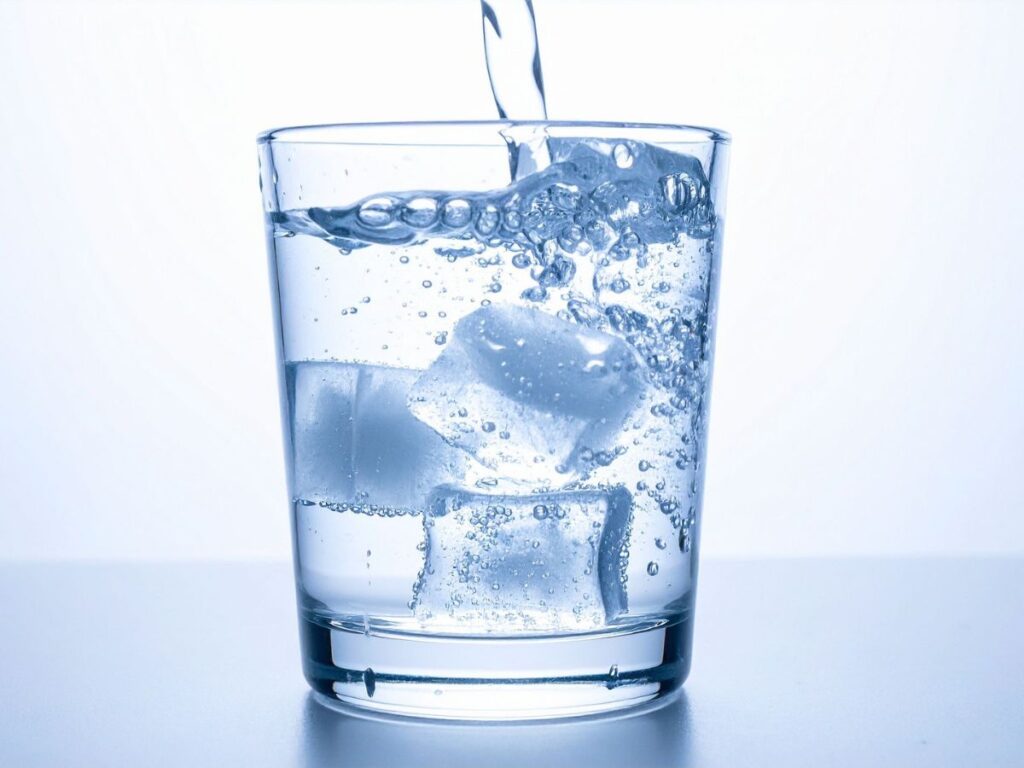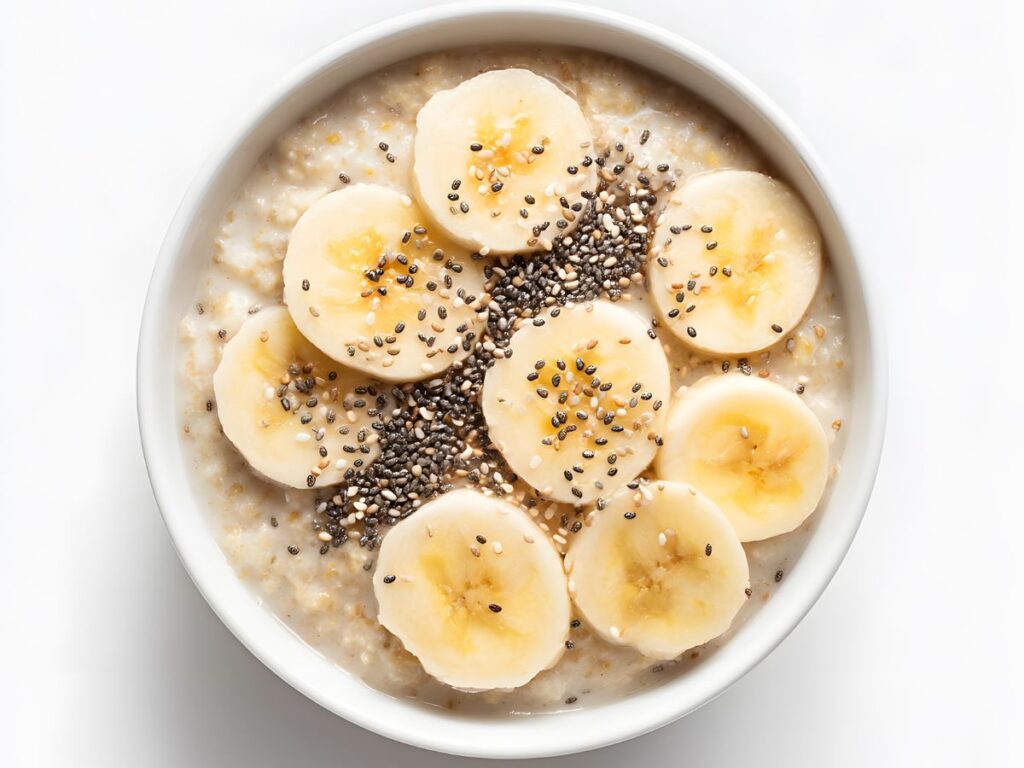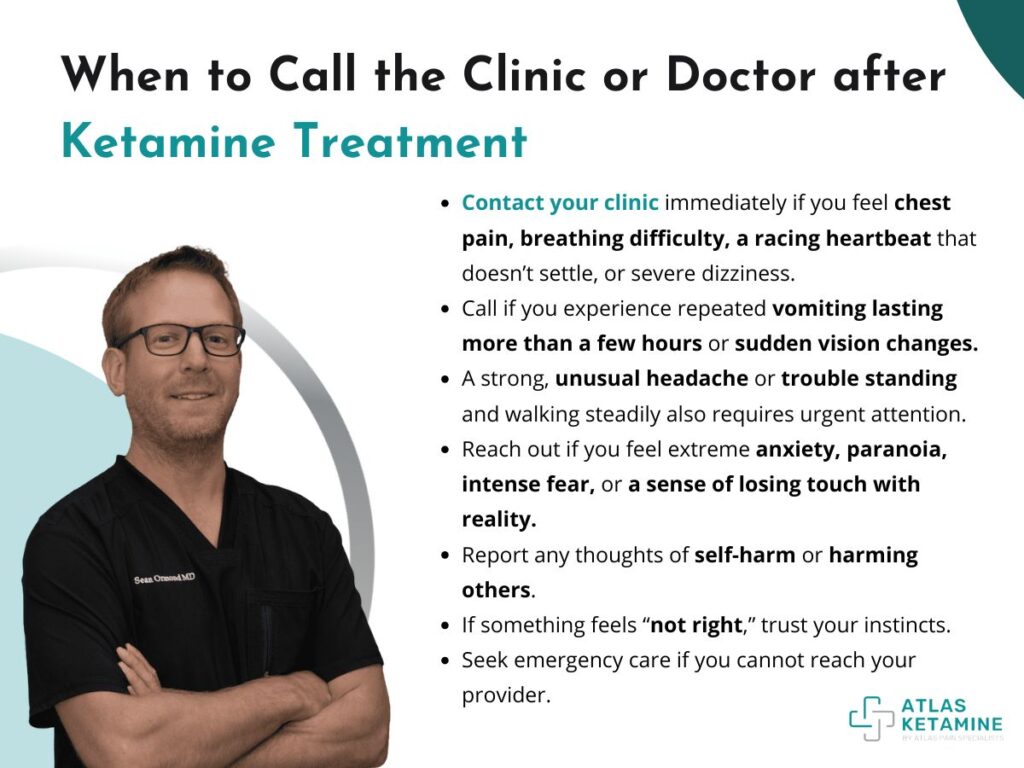For many people undergoing ketamine therapy, the first 24 hours after treatment can feel like a strange mix of clarity, calm, and uncertainty. Whether it's used for treatment-resistant depression, chronic pain, PTSD, or anxiety, ketamine works quickly on the brain but that doesn't mean the effects are fully understood right away.
In the first 24 hours after ketamine treatment, you can expect residual drowsiness, emotional shifts, and some mild physical effects all of which are temporary. Knowing what’s normal (and what’s not) can help you recover safely and get the most from your treatment.
What to expect 24 hours after ketamine treatment? Let’s walk through what you might feel, how to care for yourself, and when to seek medical advice.
Physical Effects: Temporary, but Noticeable
Most people feel physically off-balance for several hours after their infusion or nasal spray treatment. Some symptoms fade within hours, while others linger into the next day.
Common physical effects within 24 hours include:
- Mild dizziness or “spaced out” sensations
- Nausea (especially if you didn’t eat before treatment)
- Fatigue or deep drowsiness
- Blurry vision or light sensitivity
- Slight increase in heart rate or blood pressure
- Dry mouth or metallic taste
You may feel like you’re coming off anesthesia not fully groggy, but not back to normal either. This is why most clinics require you to have someone drive you home and recommend taking the rest of the day off to rest.
In some cases, clients report increased sensitivity to touch or light, or a "body floating" sensation that can last a few hours. These effects are not dangerous but can be disorienting if you aren’t expecting them.
Emotional and Cognitive Changes You May Notice
Ketamine has a unique ability to disrupt depressive thought loops and shift perception but these changes can show up in subtle and sometimes confusing ways.
Emotional Reset or Emotional Release?
Within the first 24 hours, some patients feel a renewed sense of clarity or emotional distance from past pain. Others report:
- Feeling more emotionally open or vulnerable
- Moments of intense joy or calm
- Sudden emotional breakthroughs or crying spells
This is a common part of how ketamine works on mood and memory pathways. It’s also why some therapists recommend journaling or integration therapy soon after treatment to process new insights.
Short-Term Confusion or Forgetfulness
Another possibility is experiencing mild confusion, difficulty concentrating, or trouble forming sentences especially within the first few hours. This typically resolves on its own.
It’s important not to make major decisions or return to demanding tasks until you feel mentally steady. Give your brain space to reset and process.
What to Eat and Drink (or Avoid)
Nutrition can support your body’s recovery in subtle yet meaningful ways following ketamine treatment. Within the first 24 hours, your system is recalibrating physically and neurologically which means what you consume should be gentle, hydrating, and easy to process.
Hydrating your body
In the hours after ketamine treatment, gentle hydration is one of the simplest ways to support recovery. Your body may feel a little light headed or tired, especially if you had to fast beforehand, so sipping water slowly through the day is more comfortable than drinking large amounts at once.
Warm herbal teas such as chamomile or ginger can calm the stomach and relax the nervous system if you feel slightly unsettled. Drinks like coconut water or diluted fruit juice can also help replace electrolytes without causing jitters or disturbing sleep.





Gentle meals your stomach can handle
When your appetite returns, focus on soft, familiar foods that are easy to digest. Simple meals such as oatmeal, rice, mashed potatoes, soup, or toast with a banana provide steady energy without overloading your stomach in the first 24 hours after ketamine treatment.





Start with small portions and give yourself time to notice how your body responds before you eat more. Many people feel more comfortable when they spread food across a few light meals rather than sitting down to one large plate, especially on the day of treatment.
Foods and drinks better saved for later
Heavy, greasy, or very spicy meals are best kept for another day, as they can trigger nausea, heartburn, or a sense of sluggishness while your system is still settling. Processed snacks and fast food often leave you feeling drained rather than nourished, which works against the calming effect you are trying to maintain.
Alcohol and caffeinated drinks like coffee or energy beverages can interfere with rest and may intensify any remaining dizziness. By choosing light, simple meals and plenty of fluids instead, you give both your brain and body a smoother path through the recovery period.
Can I Sleep Normally After Ketamine?
Some people feel tired and nap easily after treatment, while others feel mentally wired or overstimulated. Either is normal.
If you have trouble falling asleep that night, try:
- Turning off screens an hour before bed
- Playing gentle music or white noise
- Using an eye mask or blackout curtains
- Practicing slow breathing or a body scan meditation
Insomnia after ketamine isn’t unusual and tends to resolve by the next night. If sleep issues persist beyond 48 hours, mention it to your provider.
When to Call the Clinic or Doctor
The first day after ketamine treatment usually brings mild and temporary side effects, but some symptoms should never be ignored. Knowing when to reach out keeps you safe and gives your care team a chance to adjust your plan if needed. If you are unsure whether something is normal, it is always better to ask than to wait in silence.

Physical symptoms that need urgent attention
Physical warning signs are your cue to contact the clinic or doctor without delay. You should call if you experience chest pain, a pounding heartbeat that does not settle, breathing difficulty, severe dizziness, or repeated vomiting that lasts more than a few hours.
Sudden vision changes, a very strong headache unlike your usual pattern, or trouble standing and walking steadily are also reasons to seek immediate medical advice.
Concerning mental or emotional changes
Emotional and mental changes can be part of ketamine therapy, but some reactions are serious enough to need urgent support. If you feel extreme anxiety, paranoia, intense fear, or a sense that you are losing touch with reality and it does not ease after several hours, you should contact your provider.
Thoughts of self harm, thoughts of harming others, or overwhelming distress that you cannot calm with usual coping strategies are emergencies that must be reported right away.
Trusting your instinct and getting help
Your own instincts and the observations of people around you are important guides during recovery. If something feels very wrong, frightening, or completely different from your past sessions, treat that feeling as a reason to call the clinic, even if you cannot name the exact symptom.
When you cannot reach your ketamine provider and believe you are in immediate danger, you should call emergency services or go to the nearest emergency department for help.
What You Should Not Do During the First 24 Hours
Even if you feel "fine," ketamine affects reaction time, balance, and perception. This means some activities are off-limits until a full day has passed.
Avoid:
- Driving or operating machinery
- Signing contracts or making big decisions
- Drinking alcohol or using recreational drugs
- Engaging in physically risky activities like biking, hiking, or heavy lifting
Plan your treatment days around full rest mentally and physically. This helps your body integrate the medicine and recover more effectively.
What Disqualifies You from Ketamine Therapy?
Not everyone is a candidate for ketamine treatment. Before you begin, your provider will evaluate whether you have any conditions or medications that might pose a risk.
Medical or Psychological Conditions
You may be disqualified from ketamine therapy if you have:
- Uncontrolled high blood pressure or heart disease: Ketamine can temporarily raise heart rate and blood pressure.
- Active substance abuse: Especially if you are using dissociative or sedative drugs.
- A history of psychosis or schizophrenia: Ketamine can worsen symptoms or trigger psychotic episodes.
- Severe liver disease: Ketamine is metabolized through the liver, so damage may increase risk.
Each of these conditions requires a medical conversation before starting treatment.
Medications That May Interfere
Some medications can blunt the effect of ketamine or increase risk, including:
- Benzodiazepines (e.g., Xanax, Valium): These may reduce ketamine’s antidepressant effects.
- High-dose opioids: These affect ketamine metabolism and can increase dissociation or confusion.
- Certain antipsychotics: Medications like risperidone or olanzapine may interact unpredictably.
If you're taking any of these, your provider may adjust the dose, timing, or recommend an alternative treatment path.
Lack of Support or Unstable Environment
Because ketamine treatment involves deep emotional shifts, having post-treatment support and a safe environment is critical. If someone has no access to therapy, is in an unsafe living situation, or is dealing with unstable life stressors, providers may suggest waiting.
Supporting Your Ketamine Healing Journey
The 24 hours after ketamine treatment are part of a broader healing arc. While the medicine works quickly in the brain, the real benefits unfold over time especially when combined with therapy, journaling, and healthy daily routines.
What you do after treatment matters. Rest, nourish, reflect, and allow yourself to feel. Your brain is forming new patterns. Give it time and space.
What Disqualifies You from Ketamine Therapy? Key Criteria to Know
Disqualification from ketamine therapy is not about “failing” it’s about staying safe. As we discussed earlier, conditions like uncontrolled hypertension, schizophrenia, or active substance use can make treatment dangerous or ineffective.
If you’re unsure, speak openly with your provider. Many clinics offer alternative protocols or referrals tailored to your needs. And for some people, addressing disqualifying factors (like stabilizing heart health or reducing certain medications) may allow them to start treatment in the future.
Your mental health journey is personal. Ketamine can be one powerful step but it’s most effective when built on a strong foundation of support, honesty, and self-care.
